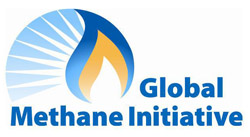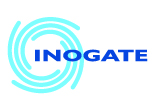
The United Nations Economic Commission for Europe is one of the five regional commissions under the jurisdiction of the United Nations Economic and Social Council. It was established in order to promote economic cooperation and integration among its member states.

Asia-Pacific Economic Cooperation is an inter-governmental forum for 21 member economies in the Pacific Rim that promotes free trade throughout the Asia-Pacific region. Following the success of ASEAN's series of post-ministerial conferences launched in the mid-1980s, APEC started in 1989, in response to the growing interdependence of Asia-Pacific economies and the advent of regional trade blocs in other parts of the world; it aimed to establish new markets for agricultural products and raw materials beyond Europe. Headquartered in Singapore, APEC is recognized as one of the highest-level multilateral blocs and oldest forums in the Asia-Pacific region, and exerts significant global influence.

The International Energy Agency (IEA) is a Paris-based autonomous intergovernmental organisation, established in 1974, that provides policy recommendations, analysis and data on the entire global energy sector. The 31 member countries and 13 association countries of the IEA represent 75% of global energy demand.

The Global Methane Initiative (GMI) is a voluntary, international partnership that brings together national governments, private sector entities, development banks, NGOs and other interested stakeholders in a collaborative effort to reduce methane gas emissions and advance methane recovery and use as a clean energy source. National governments are encouraged to join GMI as Partner Countries, while other non-State organizations may join GMI's extensive Project Network. As a public-private initiative, GMI creates an international platform to build capacity, development methane abatement strategies, engage in technology transfer, and remove political and economic barriers to project development for emissions reduction.

The Bay of Bengal Initiative for Multi-Sectoral Technical and Economic Cooperation (BIMSTEC) is an international organisation of seven South Asian and Southeast Asian nations, housing 1.73 billion people and having a combined gross domestic product of US$4.4 trillion (2022). The BIMSTEC member states – Bangladesh, Bhutan, India, Myanmar, Nepal, Sri Lanka, and Thailand – are among the countries dependent on the Bay of Bengal.

The Conference on Interaction and Confidence-Building Measures in Asia (CICA) is an inter-governmental forum for enhancing cooperation towards promoting peace, security and stability in Asia. It is a forum based on the recognition that there is a close link between peace, security and stability in Asia and in the rest of the world. The key idea of the Conference is based on the priority of the indivisibility of security, joint initiative and mutually beneficial interaction of small and large states.

C40 Cities Climate Leadership Group is a group of 96 cities around the world that represents one twelfth of the world's population and one quarter of the global economy. Created and led by cities, C40 is focused on fighting the climate crisis and driving urban action that reduces greenhouse gas emissions and climate risks, while increasing the health, wellbeing and economic opportunities of urban residents.
The Commonwealth Foundation (CF) is an intergovernmental organisation that was established by the Commonwealth Heads of Government in 1966, a year after its sister organisation, the Commonwealth Secretariat. The Foundation is located at Marlborough House in London, a former royal palace which was assigned for the use of these Commonwealth institutions by Her Majesty Queen Elizabeth II, the Head of the Commonwealth. As the Commonwealth agency for civil society, the Foundation is funded by 49 member states to support participatory governance through its programmes. The Foundation provides resources, grants and access to platforms to encourage better engagement between civil society and institutions of governance. Membership of the Commonwealth Foundation is voluntary and is separate from membership of the Commonwealth of Nations.

The Gas Exporting Countries Forum (GECF) is an intergovernmental organization currently comprising 19 Member Countries of the world's leading natural gas producers: Algeria, Bolivia, Egypt, Equatorial Guinea, Iran, Libya, Nigeria, Qatar, Russia, Trinidad and Tobago, and Venezuela are members and Angola, Azerbaijan, Iraq, Mozambique, Malaysia, Norway, Peru and the United Arab Emirates are observers. GECF members together control over 71% of the world's natural proven gas reserves, 44% of its marketed production, 53% of the pipeline, and 57% of the liquefied natural gas (LNG) exports across the globe. It is headquartered in Doha, Qatar.

The IBSA Dialogue Forum is an international tripartite grouping for promoting international cooperation among these countries. It represents three important poles for galvanizing South–South cooperation and greater understanding between three important continents of the developing world namely, Africa, Asia, and South America. The forum provides the three countries with a platform to engage in discussions for cooperation in the field of agriculture, trade, culture, and defence among others.

Energy in Mexico describes energy and electricity production, consumption and import in Mexico.

The Partnership for Energy Efficiency Cooperation (IPEEC) is a high-level international forum which includes developed and developing countries. Its purpose is to enhance global cooperation in the field of energy efficiency and to facilitate policies that yield energy efficiency gains across all sectors globally. IPEEC provides information to decision-makers in major economies, facilitating candid discussions for exchanging ideas and experiences and helping countries undertake joint projects to develop and implement energy efficiency policies and measures at a global scale. It is also a forum for member and non-member economies to share information about various bilateral and multilateral initiatives. IPEEC supported initiatives are open to both member and non-member nations as well as the private sector. IPEEC is coordinating the implementation of the Group of 20 (G20) Energy Efficiency Action Plan, which was agreed by G20 leaders in late 2014 as a practical approach to strengthening voluntary international energy efficiency collaboration. Since July 2016, IPEEC is coordinating the Energy Efficiency Leading Programme (EELP) that provides the basis for a ‘comprehensive, flexible, and adequately-resourced’ framework for strengthened voluntary collaboration on energy efficiency among G20 members and beyond.

Interstate Oil and Gas Transportation to Europe (INOGATE) was an international energy co-operation programme between the European Union (EU), the littoral states of the Black and Caspian seas and their neighbouring countries. The programme was operational from 1996 to 2016.

The Union for the Mediterranean is an intergovernmental organization of 43 member states from Europe and the Mediterranean Basin: the 27 EU member states and 16 Mediterranean partner countries from North Africa, Western Asia and Southern Europe. It was founded on 13 July 2008 at the Paris Summit for the Mediterranean, with an aim of reinforcing the Euro-Mediterranean Partnership (Euromed) that was set up in 1995 as the Barcelona Process. Its general secretariat is located in Barcelona, Catalonia, Spain.

The International Energy Forum (IEF) is an inter-governmental, non-profit international organisation which aims to foster greater mutual understanding and awareness of common energy interests among its members. The 71 Member Countries of the Forum are signatories to the IEF Charter, which outlines the framework of the global energy dialogue through this inter-governmental arrangement.

The Open Government Partnership (OGP) is a multilateral initiative that aims to secure concrete commitments from national and sub-national governments to promote open government, empower citizens, fight corruption, and harness new technologies to strengthen governance. In the spirit of multi-stakeholder collaboration, OGP is overseen by a steering committee including representatives of governments and civil society organizations.
The Sanitation and Water for All (SWA) is a global partnership committed to achieving universal access to clean drinking water and adequate sanitation. In 2015, 2.4 billion people lacked access to improved sanitation, 946 million people defecate in the open and 663 million people lack access to basic water sources.
Habitat III, the United Nations Conference on Housing and Sustainable Urban Development, took place in Quito, Ecuador, from 17 – 20 October 2016.
ASEAN Center for Energy (ACE) is an intergovernmental organisation within the ASEAN structure that addresses the interests of 10 ASEAN Member States (AMS) in the energy sector. ACE was established on first January 1999. The organisation assumes a focal job in the ASEAN energy sector. It works intimately with energy specialists/services in the 10 AMS called the Sub-sector Networks (SSN) and the Specialised Energy Bodies (SEB) and with the ASEAN Secretariat, which goes about as the overseer and director of the Endowment reserve. Together, they carry out the ASEAN Plan of Action for Energy Cooperation (APAEC), a blueprint for better collaboration towards upgrading energy. Keeping the region's improvement, sustainable and harmless to the ecosystem is a fundamental concern of ASEAN's energy sector. This concern is shared as a typical subject of each Sub-sector Network in executing its programmes. The executive director is Dr Nuki Agya Utama.















